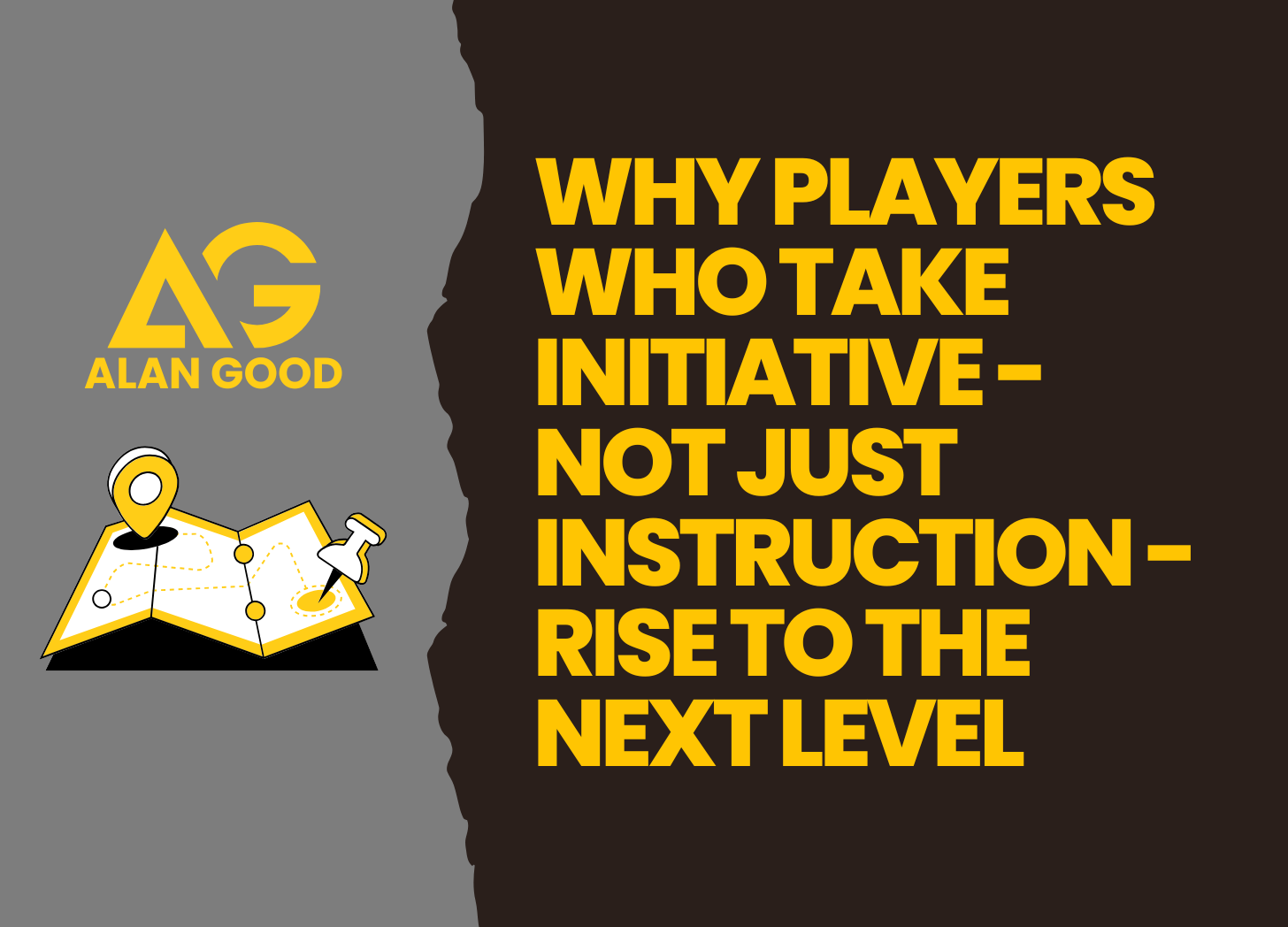Someone else will... until no-one else does
How passive habits hurt your game — and what top recruits do instead
Team sports are supposed to build you up — but they can also hold you back.
You train together. Win together. Lose together.
But shared responsibility can quietly become something toxic:
"Someone else will do it."
Whether it's warming up, taking charge, giving direction, or solving problems in real time, players too often fall into a passive trap: waiting for someone else to act instead.
The result? Sloppy starts. Poor communication. Lack of accountability. Teams that are full of players but short on leaders.
It can feel risky to speak up or take charge - many players are worried about what their teammates will think of them.
But if you're aiming to play college field hockey, it's a habit worth breaking fast.
Here's where the Someone Else Will trap shows up most often:
Everyone is standing around waiting for the coach to start warmups
Nobody is telling teammates where the open space is
The press breaks down, but nobody speaks up to fix it
Equipment is left behind after practice because "someone else" will handle it
A teammate is struggling, and the sideline goes quiet
Coaches can give you structure. But they can’t lead for you, and they can’t fix silence. That’s on you.
They need players who take initiative and help others get back on track when things go wrong.
They’re looking for personalities who want to clean up the little details, and who will speak with clarity, not just volume.
And those players stand out.
Here’s how to become one of them:
1. Take ownership of your environment
The best teams don’t rely on the coach to notice everything. They notice things for each other.
If you see a ball bag left out, grab it.
If warmup feels flat, lead by example and raise the energy.
If no one is organizing the press, start the conversation.
Leadership isn’t a title. It’s a behavior. And it starts with doing things that aren’t technically "your job" because they make the team better.
2. Be the one who connects the group
When your teammate makes a mistake, how do you react?
Too many teams go quiet, or worse, get passive-aggressive.
But connection is a skill. And you can train it.
High fives. A pat on the back. Eye contact. Calling people by name. Even a short "we’ve got this" can shift the whole mood.
Energy-Giving Behaviors (EGBs) have been studied in professional sports for a reason: they are effective.
Show coaches that you bring more than just skill — you bring connection.
3. Get good at giving feedback
This one matters more than you think.
If you’re in a drill and a teammate keeps getting it wrong, do you:
Say nothing?
Yell the correction into the void?
Pull them aside and explain it clearly?
The best players choose option 3.
It doesn’t mean you’re being bossy. It means you’re helping the team improve.
College coaches notice players who communicate solutions during drills or games.
They don’t want robots who need constant instruction — they want thinkers who problem-solve on the fly.
4. Use names and be specific
"We need to move the ball faster" is a start.
But "Ellie, next time, prescan earlier so you can know your next move and pass it quicker" is what actually helps.
Specific feedback creates clarity.
And specific questions show leadership.
If you’re not sure what your press shape is supposed to look like, don’t ask: “Wait, what are we doing?”
Instead, try something like: “Coach, can you walk me through what you want from the center forward once the ball shifts to the outside?”
This makes a big difference. It shows you’re engaged, thoughtful, and focused on getting things right.
Reality Check
If you're waiting for someone else to lead, the opportunity will pass you by.
Every team needs players who:
Speak up when it matters
Step up when it’s needed
Lift up those around them
Don’t wait for someone else to lead.
If you want to stand out, be the one who steps forward first.
Mindset is trainable. But most athletes never train it. That’s why I created The Resilient Athlete - a digital course designed to help teenage players build the mental skills that fuel long-term performance.
You’ll get lifetime access to all current and future lessons for $15. If this newsletter resonated, you’ll love it.


